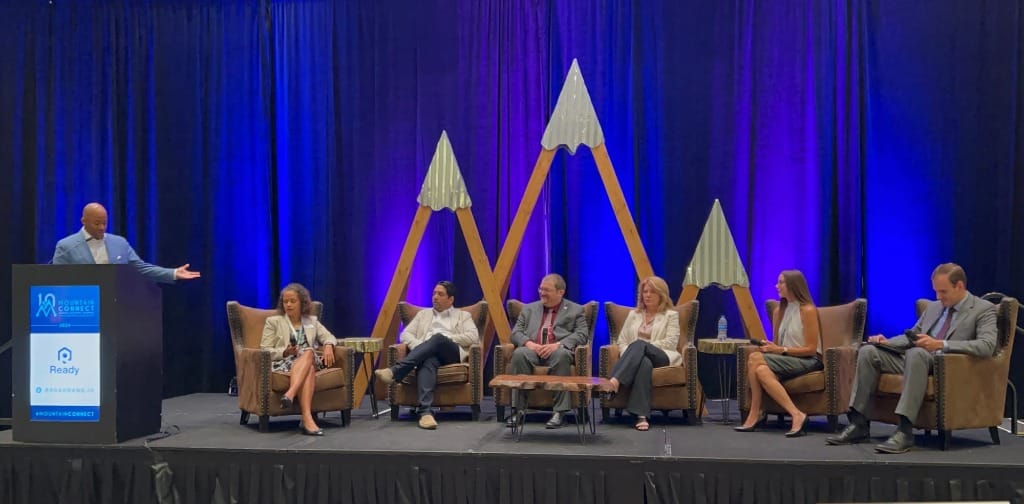State Broadband Directors Share Advice on Speeding up BEAD
‘I would encourage everyone… to really advocate to the NTIA for an expedited approval process,’ former broadband director said.
Joel Leighton, Drew Clark

DENVER, August 8, 2024 – State broadband office directors shared how they adapted to challenges posed by the Broadband Equity, Access, and Deployment program.
The directors from six different states appeared during a Tuesday Mountain Connect plenary panel here to talk strategy.
The BEAD program, which is to provide $42.5 billion for broadband infrastructure in unserved and underserved communities, has received criticism from some for delays in its rollout.
Former Kansas broadband office director Jade Piros De Carvalho said that many in the industry were caught off guard by the lengthy approval process for challenge data.
Carvalho said Kansas received approval for their challenge data only last Friday, after submitting it in February.
Carvhalo encouraged the audience of industry leaders to plan accordingly for the consequences of time delays, as cost of material and labor for buildout will increase.
“I would encourage everyone in this room to really advocate to the NTIA for an expedited approval process once it’s submitted so that we can meet these deadlines,” Carvhalo said.
Carvhalho also addressed past friction between Kansas and the National Telecommunications and Information Administration over the BEAD process.
"I think Kansas kind of gets a bad wrap for being maybe a little bit rogue with NTIA but it’s not an us-versus-them mentality,” Carvalho said. “I’m not sure I believe in that hierarchy because consumers should be at the top.”
Louisiana has also adapted to challenges in preparation for infrastructure projects. Veneeth Iyengar, executive director of ConnectLA, said the state has already faced challenges locating relevant utilities.
Iyengar praised state Gov. Jeff Landry for signing into law an act which requires providers receiving BEAD funding to notify communities 30 days in advance, allowing time for local coordination.
Iyengar explained that the act aims to prevent disruptive and uncoordinated activity among subcontractors working on water mains, gas lines, and other utilities. He added that community collaboration has made the BEAD process more effective.
“A lot of the success is not only driven by providers building in communities but in the communities themselves,” Iyengar said.
Something that helped the state of Colorado, according to Broadband Office Executive Director Brandy Reitter, was its history of challenge processes. Reitter noted that the state’s well-developed broadband program had been conducting challenge processes bi-annually for several years.
“We developed everything from scratch, in terms of the portal. Our whole process and our team is excellent,” Reitter said.
Colorado received its Volume 2 approval in June.
The panel was also joined by Sally Doty, director of the Office of Broadband Expansion and Accessibility of Mississippi; Chandler Vaughan, associate director of the Virginia Office of Broadband and Peter Voderberg, chief of BroadbandOhio.










Member discussion